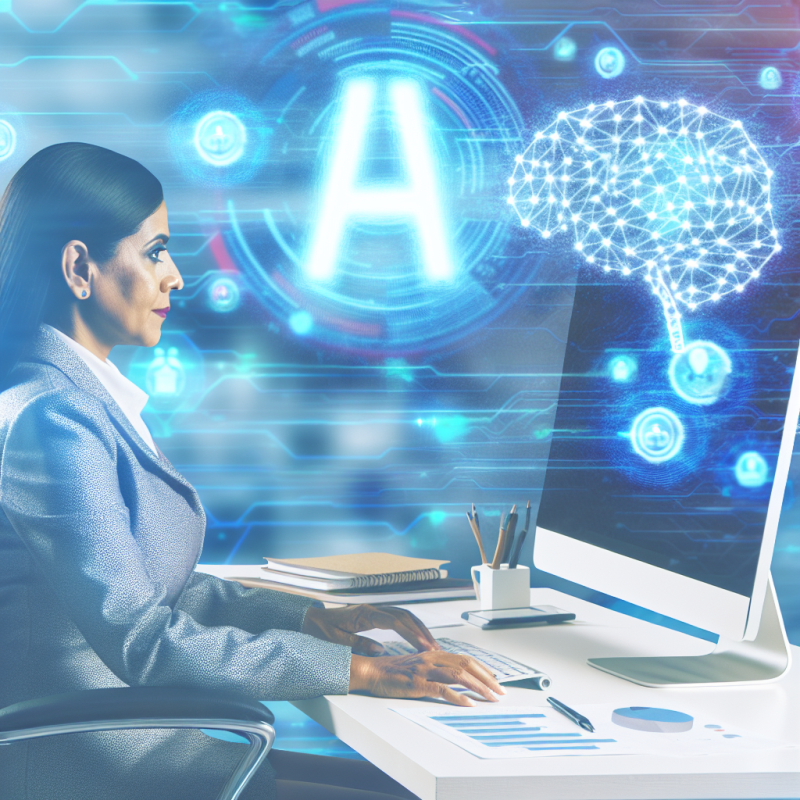AI ethics is all about understanding how artificial intelligence impacts our lives and society. With the rise of AI technologies, we face big questions about what’s right and wrong. It’s not just about making cool tech; it’s about making sure that tech is used responsibly and fairly.
When we talk about AI ethics, we look at issues like fairness, privacy, and transparency. For instance, how can we ensure that AI systems treat everyone equally? There are concerns about bias in AI algorithms, which can lead to unfair outcomes. It’s crucial to build systems that everyone can trust, and that starts with understanding these ethical principles.
Another important aspect is privacy. With AI collecting tons of data about us, we need to know who has access to that information and how it’s used. Transparency is key here—people deserve to understand these processes so they can feel safe and informed.
Ultimately, AI ethics pushes us to think ahead. As we develop these powerful technologies, let's make sure they contribute positively to our lives. By putting ethics at the forefront, we can create a future where AI supports humanity in a fair and respectful way.
Why AI Ethics Matters
AI ethics matters because it helps ensure that technology serves everyone fairly. With AI popping up in so many areas of our lives, from healthcare to finance, we need to make sure it doesn’t unintentionally harm anyone. If we don’t think about the ethical side of AI, we risk creating systems that could discriminate or invade our privacy. Nobody wants that!
Another reason AI ethics is super important is accountability. When AI makes decisions, like approving loans or diagnosing medical conditions, we must know who’s responsible if something goes wrong. Clear ethical guidelines help create trust between people and technology. Without trust, we hesitate to embrace AI, even if it has a lot of potential to improve our lives.
Plus, ethical considerations guide researchers and developers to create better tech. Focusing on fairness and transparency can lead to innovative solutions that are not just effective but also responsible. That way, we can promote tech that’s inclusive and beneficial to all, rather than just a select few.
Lastly, as AI continues to evolve, we need ongoing conversations about ethics. It’s not a one-and-done deal. Keeping the dialogue open allows us to adapt our standards alongside technological advancements, ensuring that we are always prioritizing the well-being of society. This is how we can push for a future where AI truly enhances humanity, while also keeping our values in check.
Real World AI Ethics Examples
When we talk about AI ethics, real-world examples make things clearer. Let’s look at a few situations where AI raised ethical questions and sparked discussion.
One key example comes from facial recognition technology. In cities across the globe, police departments started using AI to identify suspects. While this tech can help catch criminals, it can also lead to issues like racial bias. Studies showed some systems were less accurate for people of color. This brought up concerns about discrimination and wrongful arrests. People started pushing back, leading to bans in several cities.
Another notable case is the use of AI in hiring. Companies began using algorithms to sift through resumes and shortlist candidates. Sounds efficient, right? But if those algorithms are trained on biased data, they might favor certain demographics over others. This raises serious questions about fairness in the workplace. Many companies are now realizing they need to ensure their AI tools reflect their commitment to diversity and inclusion.
Then there’s the world of autonomous vehicles. Self-driving cars promise to reduce accidents, but what if they face a scenario where they must choose who to harm in an unavoidable crash? This moral dilemma generated a ton of debate. Who decides what’s right in that moment? Developers and ethicists are still figuring out how to address these tough questions to ensure safety and accountability in the future.
Easy Steps to Embrace AI Ethics
Embracing AI ethics doesn’t have to be complicated. Here are some easy steps to get you started on the right path. Each step helps you think critically about the impact of AI on society and your role in it.
First, educate yourself about AI and its implications. Grab some popular books or watch engaging documentaries. This way, you’ll understand not just how AI works, but also the potential ethical issues that come with it. Knowledge is power, and being informed is your first big step.
Next, start engaging in discussions. Talk to friends, family, or even join online forums. Sharing ideas can open your eyes to different perspectives. Ask tough questions like: "How can this technology benefit everyone?" or "What are the potential drawbacks?" These conversations are important in shaping how we all view AI.
Don’t forget to keep an eye on how companies use AI. When choosing products or services, consider brands that prioritize ethical AI practices. Look for transparency in their processes and commitment to fairness. Supporting ethical companies helps create a demand for responsible AI development.
Lastly, get involved in your community. Attend workshops, webinars, or local meetups focused on AI ethics. By connecting with others who care about these issues, you can collaborate on solutions and spread awareness. Every small action contributes to a bigger change.



